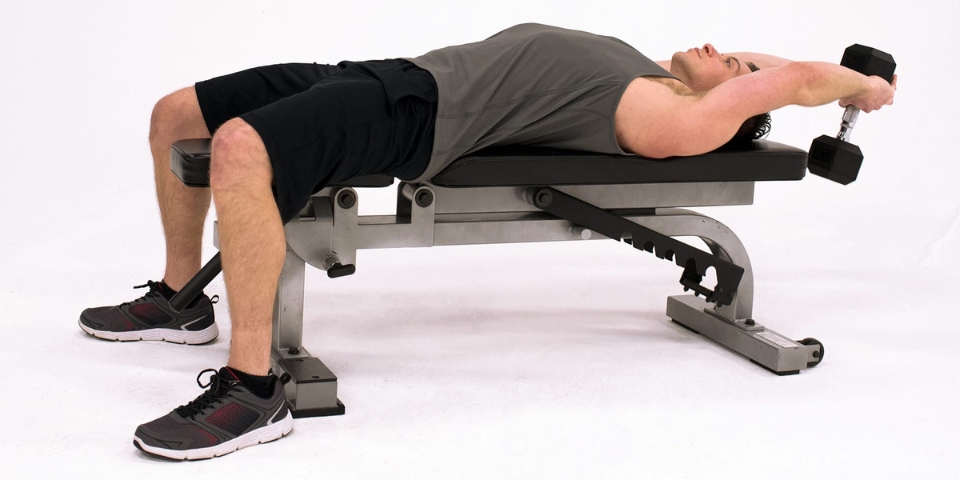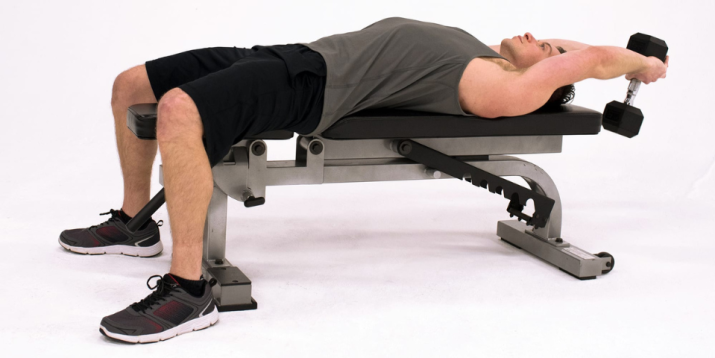
On the quest for a V-shaped torso? You’re probably already focusing on building your chest and shoulders. Makes sense — they’re the muscles you see in the mirror every day. But don’t ignore the chiseled rear view that lat exercises can build.
Your latissimus dorsi (aka “the lats”) are the broadest back muscles (you have one on either side of your spine), and targeting them can help give you a broad-shouldered, slim-waisted, fitness model physique.
Even if bodybuilder aesthetics aren’t your priority, it’s still worth your time to incorporate lat exercises into your workouts.
“Strong lats are essential to having a strong core, which is critical to maintaining good posture, lowering your risk of back pain, enhancing athletic performance, and increasing total-body strength, power, and stability,” explains Trevor Thieme, CSCS.
The following moves are some of the best lat exercises you can perform. While they aren’t your only options for targeting your lats and sculpting a V-shaped upper body, none do it more effectively.
1. Inverted Row
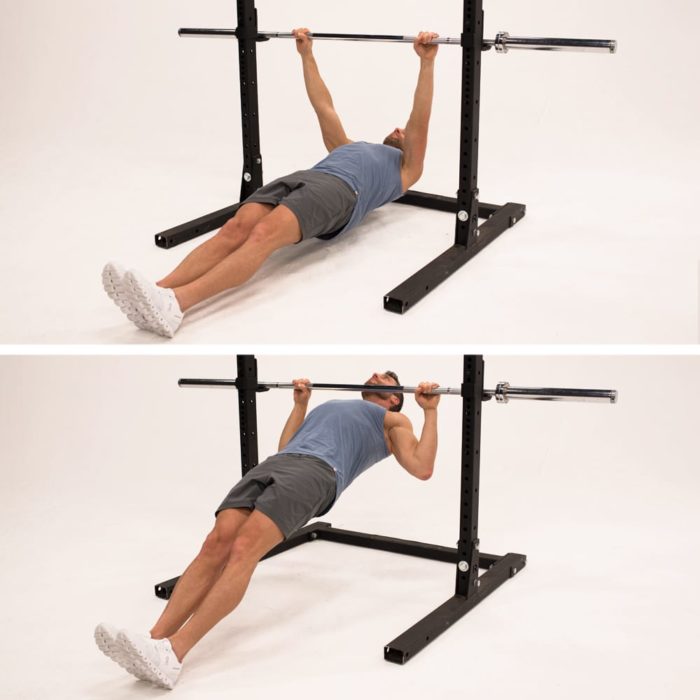
- Secure a bar in a Smith machine or power rack at waist height, and lie on the floor underneath it.
- Grab the bar with an overhand grip that’s slightly wider than shoulder width, and hang with your arms fully extended and your body straight from head to heels. Your shoulders should be directly below your hands, and your feet should be hip-width apart. This is the starting position.
- Keeping your core engaged, pull your chest to the bar.
- Pause, and then slowly lower yourself back to the starting position.
2. Pull-Up
- Grab a pull-up bar with an overhand grip that’s slightly wider than shoulder width, and hang at arm’s length (a position known as a dead hang).
- Keeping your core and glutes engaged and elbows close to your sides, pull your chest to the bar, so that at least your chin clears it.
- Pause, and then slowly lower yourself back to a dead hang.
3. Lat Pull-Down
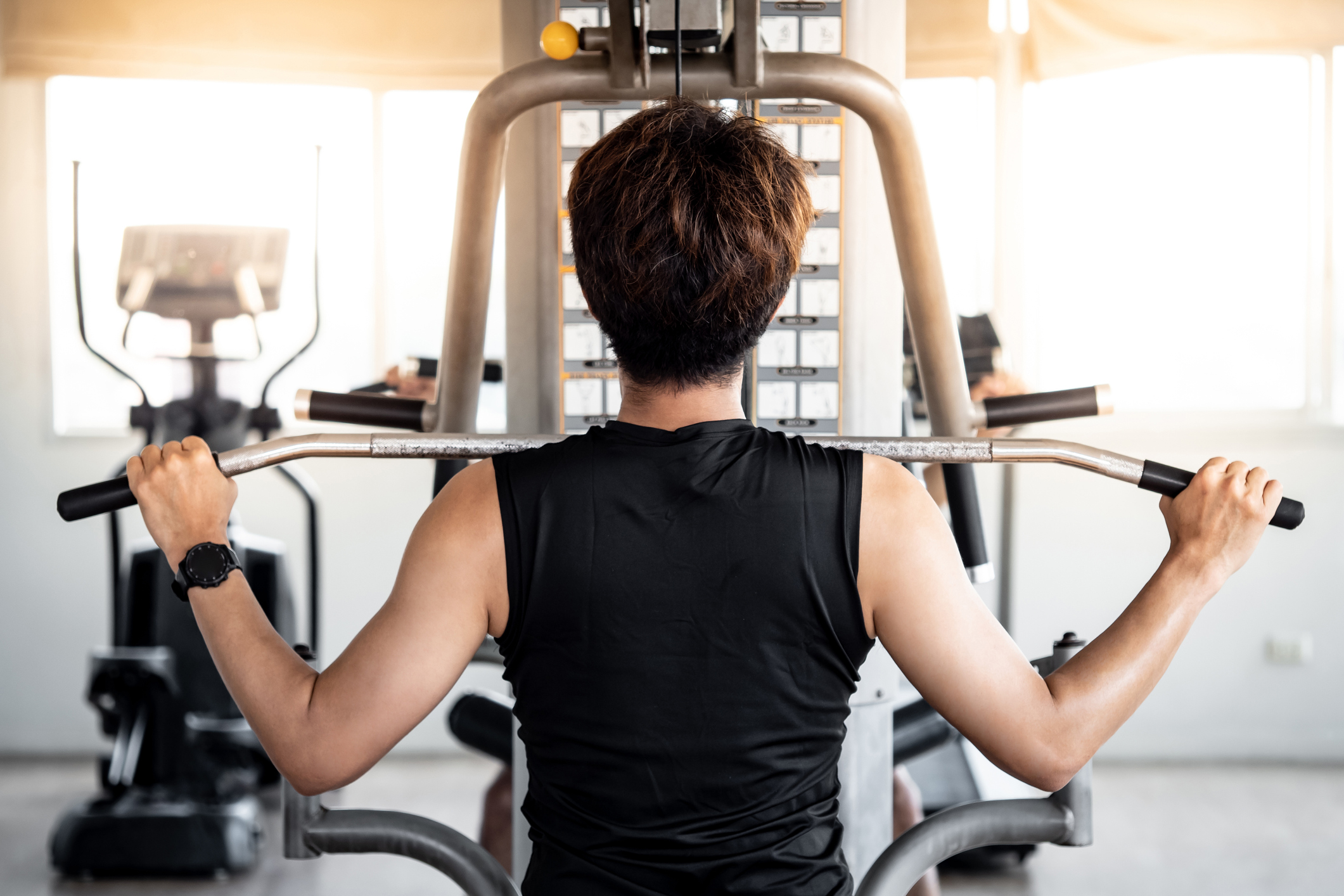
- Sit at a lat pull-down station and grab the bar with an overhand grip that’s slightly wider than shoulder width. Your arms and torso should be straight. This is the starting position.
- Keeping your back flat and core engaged, squeeze your shoulder blades together as you bring the bar to your chest.
- Pause, and then return to the starting position.
4. Dumbbell Pullover
- Grab a dumbbell, and lie with your back flat on a bench.
- With your feet firmly on the ground and your core engaged, extend your arms toward the ceiling, cupping one end of the dumbbell in both hands above your chest.
- Keeping your arms straight and low back pressed into the bench, slowly lower the dumbbell behind your head until your biceps are next to your ears.
- Pause, and then return to the starting position.
5. Dumbbell Bent-Over Row
- Stand with your feet hip-width apart, holding a dumbbell in each hand by your sides.
- Engage your core, push your hips back, and hinge forward at your waist until your torso is almost parallel with the floor. Let your arms hang straight down, palms facing each other. This is the starting position.
- Keeping your back flat, knees slightly bent, core engaged, and elbows tucked, pull the weights to your sides as you squeeze your shoulder blades together.
- Pause, and then slowly return to the starting position.
Lat Exercise Tips
- You’ll need access to basic gym equipment for most of these exercises, but some can be adapted to equipment you might have at home. For example, you can use a resistance band in place of dumbbells for the bent-over row and in place of a cable machine for the lat pull-down (you’ll need a door attachment for the latter exercise).
- For loaded exercises (e.g., those requiring weight), always choose a weight that challenges you to complete all of your reps with good form.
- If you find the pull-up too challenging, Thieme recommends using a resistance band for assistance, or focusing on other lat exercises until you’ve built enough strength to complete at least five reps with good form.
- To achieve optimal results and allow your muscles time to recover between workouts, target your lats two to three times a week on nonconsecutive days.
- Before your working sets, do a few lat-focused warm-up sets with light weight to prime your muscles for action.
Lats Anatomy and Function
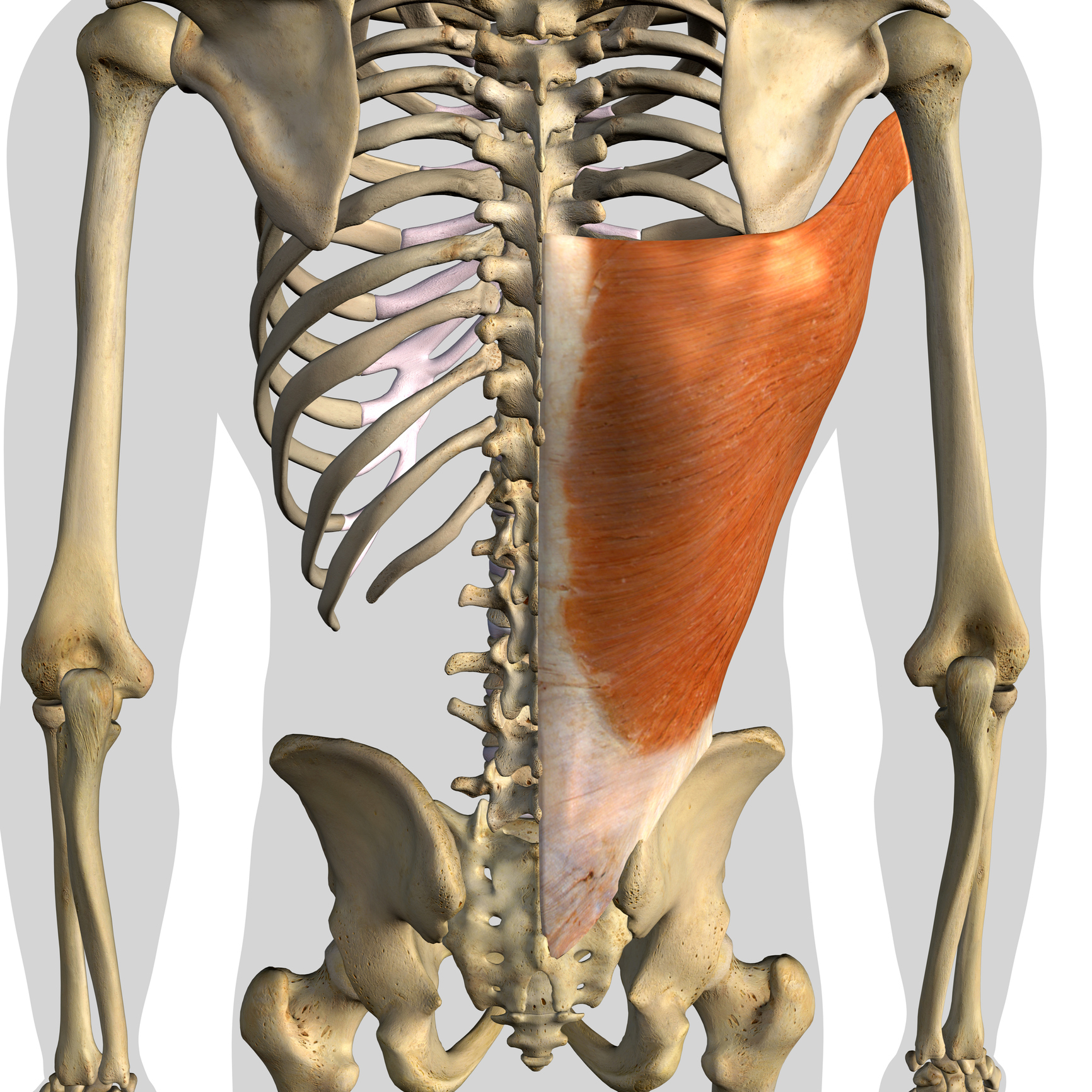
The latissimus dorsi are a pair of large, fan-shaped muscles that flank your back on either side of your spine. They have multiple points of origin — the thoracic and lumbar vertebra, the sacrum, the lower ribs, and the hip — and insert on the back of each humerus (upper arm).
The latissimus dorsi function to move your arms in three different ways:
- Draw them toward your body’s midline (adduction), such as when performing a pull-up or row.
- Extend your arms (think of them swinging backward when you walk).
- Rotate your arms inward at the shoulder.
